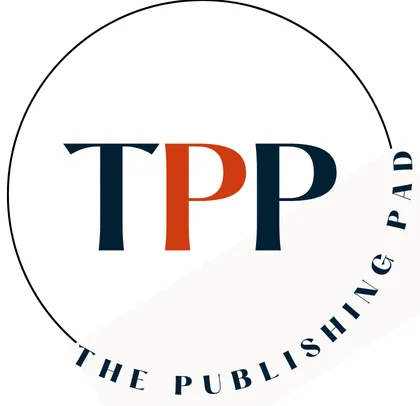Self-publishing has revolutionized the book industry, giving authors full control over their work, royalties, and marketing. For first-time authors, understanding the self-publishing process is essential to ensure their book reaches the right audience and achieves success. Whether you’re writing fiction, non-fiction, or a business book, self-publishing allows you to bypass traditional gatekeepers and publish on your terms.
This guide provides a detailed step-by-step process for self-publishing a book, covering everything from manuscript preparation to marketing and sales.
Step 1: Prepare Your Manuscript for Publishing
A high-quality book starts with a well-written and polished manuscript. Here’s how to ensure your book meets professional standards:
1.1 Outline Your Book
- Create a structured outline covering your book’s theme, chapters, and content flow.
- Set realistic writing goals to stay on track.
1.2 Write and Revise Your Manuscript
- Focus on completing the first draft without over-editing.
- Revise multiple times, improving clarity, coherence, and structure.
1.3 Hire a Professional Editor
Self-published books must meet professional standards. Consider these three types of editing:
- Developmental Editing – Improves story structure, pacing, and flow.
- Copy Editing – Corrects grammar, sentence structure, and readability.
- Proofreading – A final check for spelling and formatting errors.
1.4 Use Beta Readers for Feedback
- Share your manuscript with beta readers for an outside perspective.
- Incorporate constructive feedback to refine your book.
Step 2: Format and Design Your Book
A professionally formatted book and an eye-catching cover can increase sales and reader engagement.
2.1 Interior Formatting for Print and Ebook
- Use platforms like Vellum, Scrivener, or Reedsy for professional formatting.
- Adjust formatting for paperbacks, hardcovers, and ebooks to ensure readability.
2.2 Book Cover Design
- A book cover is the first thing readers notice—a professionally designed cover increases credibility.
- Hire a professional cover designer or use tools like Canva, BookBrush, or Adobe Photoshop.
2.3 Get an ISBN and Copyright
- ISBN (International Standard Book Number): Required for print books (available via Bowker, IngramSpark, or KDP).
- Copyright Registration: Protects your work from plagiarism and unauthorized distribution.
Step 3: Choose the Right Self-Publishing Platform
Different platforms offer various distribution options, royalties, and pricing structures. Here’s a comparison:
|
Platform |
Best For |
Key Features |
|
Amazon KDP (Kindle Direct Publishing) |
Best for ebook & print publishing |
Wide reach, KDP Select for exclusive promotions |
|
IngramSpark |
Best for wide print distribution |
Access to bookstores & libraries, global print options |
|
Draft2Digital |
Best for ebook distribution |
Distributes to Apple Books, Kobo, B&N, etc. |
|
Apple Books |
Best for Apple users |
Direct access to Apple device users |
|
Kobo Writing Life |
Best for international markets |
Strong presence in Canada & Europe |
Key Considerations When Choosing a Platform:
- Royalties: Amazon KDP offers 70% royalties on ebooks, but requires exclusivity for KDP Select.
- Print-On-Demand: Print copies are only produced when ordered, reducing upfront costs.
- Wide vs. Exclusive Distribution: Going exclusive (KDP Select) may boost Amazon sales, while wide distribution increases availability.
Step 4: Publish Your Book
Once your manuscript is polished and formatted, it’s time to publish your book.
4.1 Set Up Your Book on Your Chosen Platform
- Create an author account on KDP, IngramSpark, or Draft2Digital.
- Upload your formatted manuscript and cover design.
4.2 Write an SEO-Optimized Book Description
A compelling book description can increase sales and visibility:
✅ Use keywords (e.g., “self-publishing guide,” “how to publish a book”)
✅ Include a hook that grabs attention
✅ Highlight what readers will learn or experience
4.3 Price Your Book Strategically
- Research similar books in your genre to determine a competitive price.
- Consider offering promotions or a free launch period to gain traction.
Step 5: Market and Promote Your Book
Marketing is crucial to self-publishing success. Without a strong marketing plan, even the best books may go unnoticed.
5.1 Build Your Author Platform
- Create an author website for credibility.
- Start an email list to directly engage with potential readers.
5.2 Leverage Social Media for Promotion
- Share behind-the-scenes content about your writing process.
- Engage with book communities on Instagram, Twitter, and Facebook.
5.3 Get Book Reviews
- Send ARC (Advance Reader Copies) to book bloggers and influencers.
- Encourage readers to leave reviews on Amazon and Goodreads.
5.4 Use Paid Advertising for Visibility
- Amazon Ads can boost ebook and print book sales.
- Facebook & Instagram Ads help target specific reading audiences.
5.5 Plan a Successful Book Launch
- Host a virtual book launch via Zoom or YouTube Live.
- Offer exclusive bonuses for early buyers (e.g., a free workbook or signed copy).
Step 6: Maximize Your Earnings and Grow Your Author Career
Self-publishing doesn’t stop at launching your book—you need long-term strategies for success.
6.1 Create Multiple Revenue Streams
- Publish audiobooks through ACX or Findaway Voices.
- Offer online courses, coaching, or speaking engagements based on your book’s topic.
6.2 Write More Books
- Many successful self-published authors make money through multiple books rather than one bestseller.
- Consider writing a series to build a loyal audience.
6.3 Continue Learning and Networking
- Join self-publishing groups and attend industry conferences.
- Stay updated on Amazon algorithm changes and book marketing trends.
Conclusion
Self-publishing empowers authors with creative control, higher royalties, and faster publishing timelines. By following this step-by-step guide, first-time authors can successfully bring their books to market and build a sustainable writing career.


